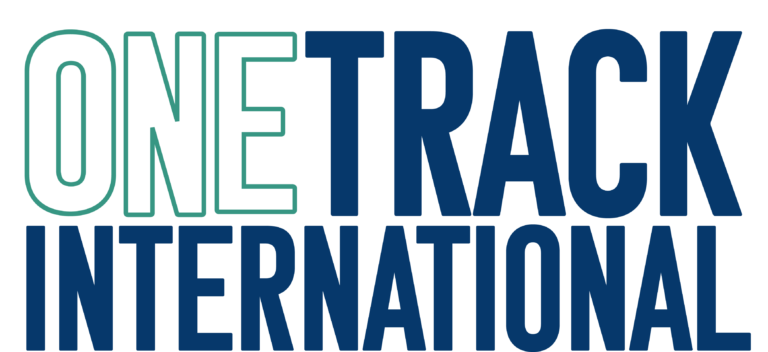Models Strengthening Family Care
ONETrack started as a region-specific project called CameroonONE. To initially confront the orphan crisis within Cameroon, CameroonONE established an In-Home Child Sponsorship program designed to support both an orphaned child as well as his or her surviving relatives, with the goal of reuniting families. Each household received PTA school fees, medical assistance, school supplies, uniforms, textbooks, shoes, a family stipend, as well as rice, seeds, cooking oil and other essentials of Cameroonian daily life. Families accepting the responsibility of receiving a child through the In-Home Child Sponsorship program would do so with the full understanding that it will be conditional that the child attends school, will be fully vaccinated and receive necessary healthcare. The In-Home Child Sponsorship program was the precursor to what would become ONETrack International’s current Transition to Home program.
It is best to begin with an assessment of the child and family situation before mobilizing resources, as support should address the root causes related to abandonment and promote child wellbeing. If vulnerable families can be identified prior to separation, preventing the splitting of families is preferred – this is what we call Institution Prevention. Ultimately, policies and operations should be working with the aim of eventually diverting their support towards preventative services and community building to strengthen the capacity of vulnerable families to look after their children.
The psychological and physical needs of the children must always be at the forefront of investigations and if a child is in danger of any kind, temporary or transitional care (respite, emergency care, rehabilitation, or small group homes) can be utilized while the family unit receives resources and support. Indeed, during the process reunification it may be necessary to temporarily provide a child with a more suitable form of alternative care, such as foster or small group homes. The decision to relocate children should be regularly reviewed to ensure children are returned to their family environment in a timely but considered manor.
Regardless of whether family strengthening occurs prior to or after separation, both processes need to have a child-centered approach to ensure children are not inappropriately removed at a later date. The United Nations Convention on the Rights of the Child (United Nations, Treaty Series, vol. 1577, No. 27531) should be considered when making decisions regarding a child’s new family environment. Gatekeeping, the process in which families and children are assessed at all levels to ensure a safe and caring environment, is the most important aspect of the reunification process. Effective gatekeeping ensures decisions are made in a rational, planned and prudent manner, and that resources are distributed effectively. Those responsible for gatekeeping and assessing best care options should always be seeking out families within the child’s community of birth that are stable, safe and nurturing environments.
For a thriving childhood, access to the following is necessary:
– Education
– Healthcare
– Nutrition
– Culture
– Adult Guidance
– Psychological Support
– Security
– Economic Stability
The resources necessary to provide a thriving childhood can be broken up into the following 5 support categories: parental, livelihood, community, psychological, and basic living. These 5 categories should be offered as a comprehensive support package, although, depending on the needs, a family may not need all categories.
1) Parental support: Providing caregivers with the tools to parent can address childrearing techniques that are counteractive or detrimental, as well as, ensuring parents understand the essentials for healthy development. This can include advice in preparing nutritious meals, appropriately tackling child behavioral problems, conflict resolution, and/or creating a safe, predictable and supportive family environment. If working with vulnerable families prior to child separation, encouraging awareness of issues being faced should be approached sensitively and social norms for the community should always be taken into account when giving advice. Parental support may extend to creating awareness of government policies on the protection and wellbeing of children, and of resources in the area, including non-governmental initiatives, providing healthcare, education and security.
2) Community support: The sense of belonging to a community is an important aspect of raising a family and often lacking in vulnerable or isolated families. For this reason, it is preferable for children to be transitioned into family care within their community of origin or one that is culturally similar. Community support begins with education of community leaders. Community support may come in the form of access to support groups, daycare, youth programs, respite care, special needs services, and spiritual guidance. These services not only help overwhelmed caregivers unable to provide adequate care, but also provide the opportunity for children to socialize, learning to form healthy relationships and partaking in community networks.
3) Livelihood support: In many cases, providing family members with the skills and capital to engage in livelihoods will be necessary to feed and support the children. Capacity building can come in many forms including a stipend, grants, material support, food, agricultural supplies, microcredit loans, small business training, vocational training, and legal advice on property and inheritance. Strategies offered to families should complement the available community products and services as well as existing government welfare initiatives. Additionally, assistance in managing finances and debts should be provided to the head household members. A commitment from caregivers to actively participate in proposed initiatives is necessary for success and, therefore, support should be provided only after discussions with the family. Poverty should never be considered a motive for removing a child from parental or relative care, but rather an indicator for timely support.
Children of vulnerable families are at risk of dropping out of school to care for other family members or contribute to family income. Efforts from livelihood and community support should work towards children having less responsibility in supporting the family household.
4) Psychosocial support: Psychological support for caregivers and children is particularly important for families who have experienced a distressing separation or traumatic events. Trauma can result in children undergoing a range of behavioral issues including anxiety, difficulties with attachment, sleep disturbances, dependency issues, and/or regression. Each child will handle experiences differently and, therefore, psychosocial support needs to be approached on an individual basis with a thorough assessment of the scope of issues and the child’s coping mechanisms. Parental and child interventions should be accessed within the community and may come in the form of therapy, substance abuse treatment, psychiatry, home visits, group support meetings, and counseling. Child-focused activities should empower children, promoting self-confidence, relationship building and a sense of control over their lives, as well as safeguard the child’s right to identity, freedom, religion and opinion.
5) Basic living support: Basic living support should complement existing amenities in the community who are providing basic living services, such as secure housing, clothing, schooling supplies, clean running water, electricity, primary healthcare, family planning, medications, nutritious food, transport, and primary and secondary education. An assessment should be preformed to better understand the cost of living in the area, including costs associated with school, rent, medical insurance, and household bills.


